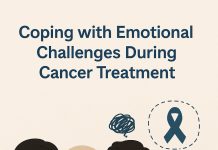Smoking is a big problem in today’s world, with dangers not just for the smoker but also for those around them. It’s vital to quit smoking to protect your health and the health of others. The World Health Organization says tobacco kills over 8 million people every year. This shows how serious the issue is.

Understanding nicotine addiction is key. It affects not just the person smoking but also their community.
Understanding the True Risks of Smoking
Smoking has significant health risks, including lung cancer, heart attacks, and strokes. It affects almost every part of the body, with lung cancer accounting for 85% of cases.

Long-term effects include Chronic Obstructive Pulmonary Disease (COPD), which can lead to breathing problems and difficulty in physical activity. Long-term smokers often experience a drop in lung function, increasing their susceptibility to infections and respiratory issues.
| Health Risks | Short-term Effects | Long-term Effects |
|---|---|---|
| Respiratory Issues | Coughing and wheezing | Chronic bronchitis and asthma |
| Cancer | Increased risk of throat and mouth cancer | 85% of lung cancer cases attributed to smoking |
| Cardiovascular Problems | Raised blood pressure | Heart attacks and strokes |
| Reduced Immune Function | Frequent colds and infections | Chronic Obstructive Pulmonary Disease (COPD) |
Understanding these risks is crucial for adopting a healthier lifestyle and taking control of your health. Staying informed and taking control of your health is essential.
The Hidden Dangers of Smoking: Kick The Habit
Smoking is more dangerous than you might think. It’s not just about the health risks you know about. Smoking can lead to chronic illnesses like heart disease and lung problems. It can also cause different types of cancer, slowly affecting your health.

Nicotine makes quitting smoking hard. This addictive substance traps you in a cycle that’s tough to break. To stop smoking, you need more than just willpower. You need to understand how deeply smoking is woven into your life.
- Awareness of the detrimental effects can be eye-opening.
- Recognising the psychological hold of nicotine is critical in your journey.
- Making a conscious effort towards smoking cessation can lead to significant health improvements.
It’s vital to know about these hidden dangers. The more you smoke, the deeper these risks become. Taking action is crucial. Putting your health first and learning about smoking’s dangers can change your life.
Psychological Effects of Nicotine Addiction
Understanding the psychological effects of smoking is crucial for those struggling with nicotine addiction. Quitting is challenging, involving strong cravings and uncomfortable feelings.
Nicotine withdrawal symptoms can be irritable, moody, and anxious, affecting daily life and well-being. Over time, smoking can lead to anxiety and depression, making healing harder. To help, it’s important to recognize these symptoms and work towards overcoming them. A cycle of seeking relief from cravings can result in long-term mental problems, making it difficult to feel emotionally stable.
Effective Strategies to Quit Smoking
Quitting smoking involves a combination of strategies, including nicotine replacement therapy, which provides nicotine without the harmful components of cigarettes.

Nicotine patches help gradually quit smoking and prevent its dangers, while gums and lozenges provide immediate relief. Support groups like Quitline Nigeria offer advice and resources to help individuals stay motivated and stick to their quit plan. You could also download apps like WHO quit tobacco app. These resources make quitting smoking more accessible and accessible, making it easier for individuals to overcome nicotine addiction.
A Word From HealthFacts To You
Quitting smoking is more than just stopping a habit. It’s about choosing a healthier lifestyle that improves your life quality. Quitting brings benefits beyond physical health, like better mental health, more money, and better social life. By starting today, you’re moving towards a smoke-free future full of life and chances.
You’re not fighting nicotine addiction alone. There are many support groups and online communities ready to help you. Starting now can lead to a healthier, happier life, giving you back control over your choices and health. Choose to do it—you deserve it.
Remember to subscribe to our newsletter for more updates from us!









